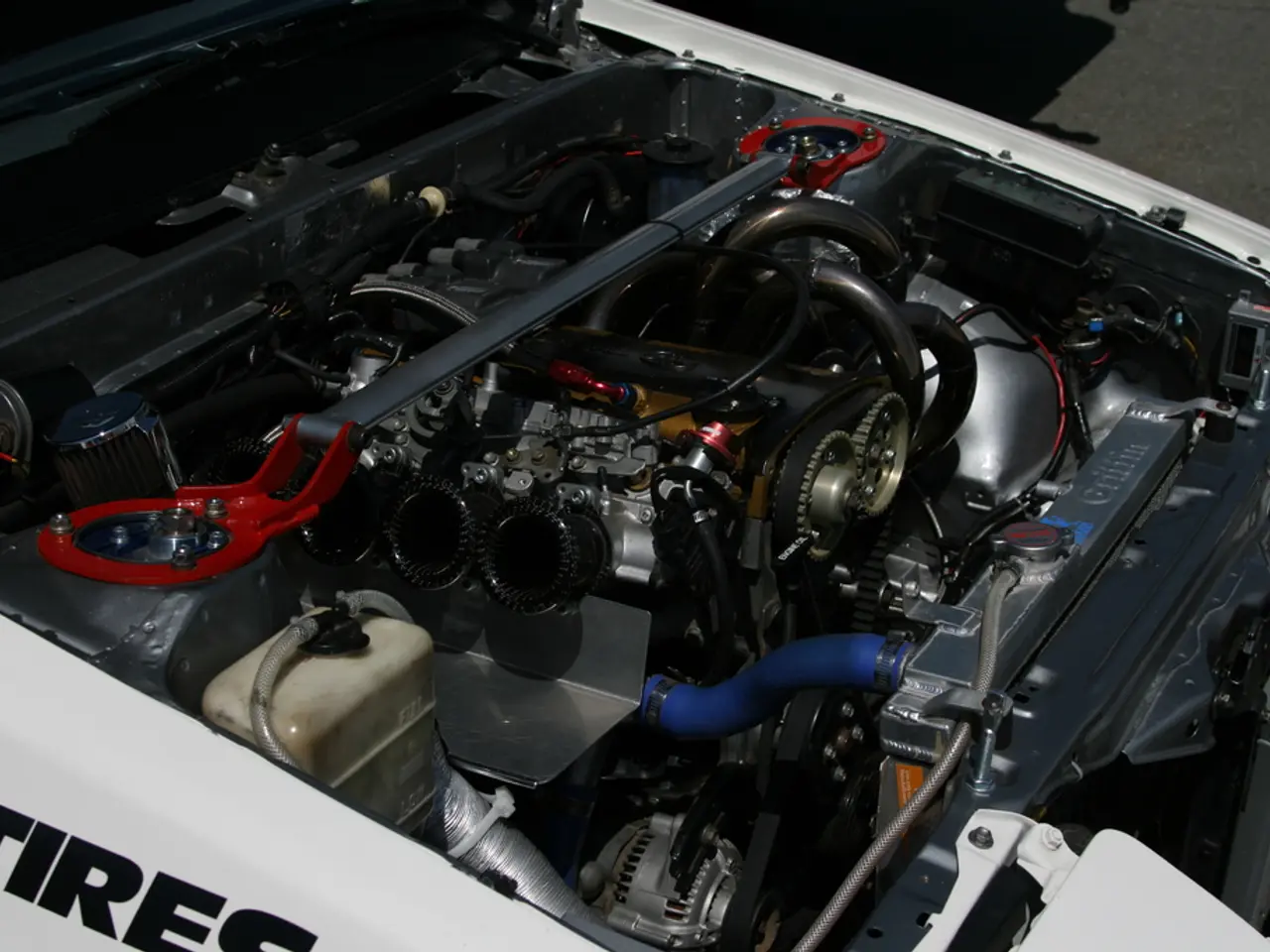LG Energy Solution initiates a manufacturing facility in Michigan for Lithium Iron Phosphate (LFP) batteries.
LG Energy Solution (LGES) has recently unveiled a new manufacturing plant in Holland, Michigan, marking a significant stride in the company's efforts to expand its production capabilities for lithium-ion phosphate (LFP) batteries, specifically designed for energy storage systems (ESS).
The new factory, with an investment of $1.4 billion, represents LGES's pivot to applying its technical and manufacturing expertise to develop and produce LFP batteries for ESS applications. The facility, which includes an existing facility, boasts a total capacity of 21.5 GWh, catering to the growing demand for grid storage and data center energy solutions.
Tristan Doherty, LGES Vertech's chief product officer, has stated that ESS applications require "less functionality" of the batteries than those used in electric vehicles (BEVs), necessitating a different approach in the production process.
The production process at the Holland facility involves several key steps. Materials such as lithium iron phosphate (LFP) for the cathode and graphite for the anode are mixed with a solvent to create a slurry with a thick, molasses-like consistency. This slurry is then coated onto metal foils—aluminum foil for the cathode and copper foil for the anode—which are dried and passed through rollers to achieve precise thickness and dimensions.
The dried cathode and anode layers are stacked together with a polymer separator between them, which prevents direct contact but allows lithium ions to move. The stacked layers undergo ultrasonic welding and laser welding to assemble the cell components into a block, which is then placed into an aluminum pouch. Electrolyte is added into the pouch, which is subsequently sealed to contain the active materials.
The finished pouches undergo several charge-discharge cycles to activate the cells and measure performance quality. Multiple inspections occur throughout the process to ensure safety and reliability. Currently, two production lines are operational, with a third planned to launch in late 2025 or early 2026.
LGES is also working on several joint-venture plants with automotive giants such as Honda and Hyundai, and is building a plant in Greater Phoenix (Queen Creek, AZ) that will start producing cylindrical cells next year. Furthermore, the company has acquired the Ultium battery plant in Lansing, MI, previously a joint-venture with General Motors.
The new factory's focus on ESS applications is timely, given the increasing importance of energy storage systems due to the growth of power-hungry data centers for cloud computing and Artificial Intelligence, as well as the growth of renewable energy sources like wind and solar. LGES's LFP batteries, valued for their long cycle life, safety, cost-effectiveness, and use of more abundant, less toxic materials compared to traditional lithium nickel manganese cobalt (NMC) chemistries, are well-suited for these applications that require durability over high energy density.
When at full production, the complex in western Michigan is expected to employ 1,700 people. Notably, Ford is also building an LFP plant in Marshall, MI, some 90 miles southeast of Holland, further solidifying Michigan's position as a hub for lithium-ion battery production. The U.S. energy storage market, currently valued at $21.9 billion, is expected to have a compound annual growth rate of 13.9%, reaching $70.7 billion by 2033, according to Dimension Market Research.
In addition to the Holland facility, LGES is opening a retrofitted plant in Madison, IL, that will pack cells together to be used in modules for energy storage. As the demand for energy storage solutions continues to grow, LGES is poised to meet this demand with its innovative and sustainable LFP battery technology.
The Holland facility, with its focus on energy storage systems, demonstrates LGES's utilization of technology in producing LFP batteries, catering to the expanding data center energy solutions and growing renewable energy sources like wind and solar, associated with data-and-cloud-computing. Conversely, LGES is also collaborating with automotive giants such as Honda and Hyundai, and developing electric vehicle (BEV) batteries, showcasing the versatility of data-and-cloud-computing and technology in the electric vehicles industry.




